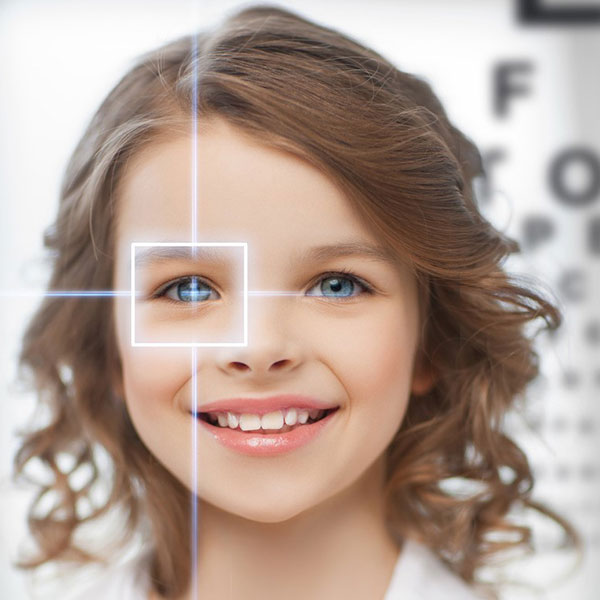Pediatric Eye Exams
Undetected or untreated vision problems can hinder a child’s ability to perform to their full potential in school.
When should children have an eye exam?

For school-aged children, the AOA recommends an eye exam every two years if no vision correction is required. Children who need eyeglasses or contact lenses should be examined annually or according to their eye doctor’s recommendations. It’s important for parents to make sure their children’s eyes are healthy. Approximately 80 percent of all learning during a child’s first 12 years is achieved through their sense of vision.
A pediatric eye examination by Dr. Droter & Dr. Paschal, includes:
- Evaluation of vision and ocular health
- Eye teaming (binocularity) skills
- Eye movement skills
- Focusing skills
- Evaluation for amblyopia (or “lazy eye”)
- Evaluation for strabismus (or eye turn)
For school-aged children, the AOA recommends an eye exam every two years if no vision correction is required. Children who need eyeglasses or contact lenses should be examined annually or according to their eye doctor’s recommendations. It’s important for parents to make sure their children’s eyes are healthy. Approximately 80 percent of all learning during a child’s first 12 years is achieved through their sense of vision.
A pediatric eye examination by Dr. Droter & Dr. Paschal, includes:
- Evaluation of vision and ocular health
- Eye teaming (binocularity) skills
- Eye movement skills
- Focusing skills
- Evaluation for amblyopia (or “lazy eye”)
- Evaluation for strabismus (or eye turn)

At least 10 to 15 percent of children – that’s 8 to 12 million in the U.S. alone – are at risk for vision impairment. Prevention of these conditions can be easy and can help your student perform his or her best at academics and sports, so schedule your child’s eye exam today with Dr. Droter or Dr. Paschal your eye doctor in Richmond, VA. While you’re at it, schedule your own exam too!
